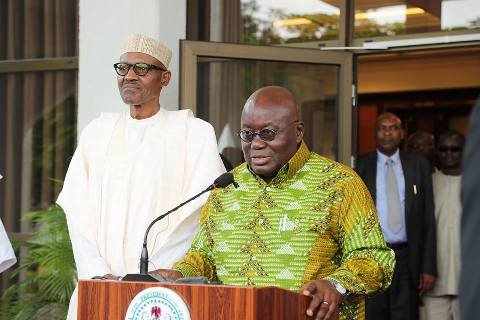REMOVING FISCAL & POLICY DRAG ON NIGERIAN ECONOMIC GROWTH

With the acceptance by government that it has been funding its capital projects in the past few years mainly from borrowing, it is no longer in dispute that this government has been running a deficit budget year on year. This pattern is set to continue with the new drive to borrow even more by the current administration. On one hand this may be understandable, since infrastructure investment is supposed to yield dividends in years to come. But for the government to be able to generate the future revenue needed to pay back these debts as well as invest in future infrastructure; there has to be economic growth. This is where my concern begins with the disaggregated approach to economic policy evident by the lack of growth synergy between fiscal and monetary policies in Nigeria.
Consumer spending by citizens is the back bone of sustainable growth in any economy. A collapse in public confidence in the economy such that spending is reduced will drag back the economy and could even lead to recession. I therefore cannot see the wisdom in this administration putting a squeeze on people’s pockets from both the fiscal and monetary policy tools.
Government announced an increase in VAT from 5% to over 7%. VAT is a blunt instrument that increase prices across the board. As cost of goods and services begin to rise due to this development, the CBN also announced series of policy measures that has the effect of taking more money from the same pockets of Nigerians. From charges on Cash deposits, (in addition to that already in place on withdrawals), to new charges on individual Point of Sales transaction; to FOREX restriction on certain goods when local production supply is still inadequate to meet local demands (which can lead to higher prices).
Government should be thinking long term. I appreciate the impatience of politicians to see everything done within their term in office; but economic growth has to be nurtured through long term planning and stable policy environment. This administration need to reconsider its ways and policy portfolio if the economy is to grow as expected.
A Regional Exemplar
In 2016, it was clear to the government of Ghana that the economy was not growing as it should and needed stimulating to arrest a possible major decline. So, in 2017, the government identified the tax burden on the Private Sector as being a contributory factor. Many of these taxes were on production, (just as in Nigeria) rather than on profit. So, they took action. Recognising that the taxes imposed by the previous administration in its quest to raise revenue was actually dragging down the economy, the government abolished and reduced various taxes in an effort to stimulate the economy.
The list of taxes that were abolished by the Ghanaian government are:
· 1% Special Import Levy,
· Kayayei market tolls ,
· 17.5% VAT/NHIL on financial services ,
· 17.5% VAT/NHIL on selected imported medicines produced locally,
· 17.5% VAT/NHIL on domestic airline tickets ,
· duty on imported spare parts,
· 5% VAT/NHIL on Real estate sales and
· Excise duty on petroleum.
In addition, they also reduced corporation tax to 20% (from 25%), while the 17.5% VAT/NHIL would be replaced with 3% flat rate for traders; adding that tax credits and other incentives for businesses that hire young graduates from tertiary institutions would be reduced. Special petroleum tax was also reduced from 17.5% to 15%.
In a remarkable turnaround, the Ghanaian fiscal deficit narrowed to 5.9% of GDP in 2017 from 9.3% in 2016. Ghana’s growth target for 2019 is 7.4%. While still contending with global pressures like any other country, Ghana has been able to stabilise itself through a bold fiscal reform which unlocked private sector spending to help keep the economy afloat.
In its 2019 budget; Ghana expects full year domestic revenue collection to be GHS 57.79 billion, representing an annual growth of 25.5% over the projected outturn for 2018 driven MAINLY by tax revenue. This is the dividend of effective tax reform which stimulates private sector and consumer spending.
The Nigerian Approach
I have taking the time to show the example of Ghana; not because its economy has no challenges; but to explain what is possible if consumer spending is encouraged through fiscal policy measures. In Nigeria, we are doing the opposite. Taxes are going up, and squeeze on consumer funds is increasing as well from the monetary tools being deployed by the CBN.
Nigeria emerged from recession in 2017, with a growth rate of 0.8%, driven mainly by the oil sector. Growth was higher in 2018 (at 1.9%). Our economic growth is expected to hover just above 2% in 2019. Yet, instead of stimulating consumer spending in the economy to kick-start growth, the government seem to be doing the opposite.
With nearly a quarter of the work force unemployed in 2018; and additional 20% under-employed the drag on the economy is massive. Nigeria had 3.9 million net entrants into the labour market (now 90.5 million) during 2018 (up to September), but virtually no growth in the stock of jobs, unemployment rose by 2.7% since end-2017, and more than doubled compared to 2015; (9.9% in Q3 of 2015). These figures should call for a massive growth initiative, but the government seems to be focused just on growing its own revenue at all cost, even if it means killing the goose that lays the golden egg.
Recommendations
So, what can the government do? It is conventionally accepted that often government policies can take months or even years to yield desired result. Consequently, the state of the Nigerian economy over the next 3-5 years will be determined by government policies today. In my opinion, the government (focusing on the low hanging fruits) need to be bold and take the following steps immediately:
1. Reverse the Increase in VAT announced. Apart from the potential inflationary effect of VAT increase, it also reduces the money in the pockets of consumers as their purchasing power is reduced. This will not stimulate spending, but contract it.
2. CBN should slow down its manic drive of Cashless Policy. More Nigerians do not have bank accounts than those that have. Rather than squeezing the few; CBN should first initiate banking reforms that will get more people to have bank accounts and come on-board the formal economy. Working with other agencies, the CBN should consider incentives that will grow investment in the Telco sector that will increase the reliable mobile coverage across Nigeria before intensifying its drive at cashless economy. So, to this end, the CBN should:
a. Reverse its cash deposit charge directive. Depositing should be made even easier and encouraged; especially given the fact that there is already a charge policy of withdrawals.
b. Reverse the planned introduction of charges on individual POS transaction. This will discourage the use of POS when in fact it should be encouraged as a cheaper payment channel.
c. Work with the banks to consolidate its charges (that has nothing to do with services that relates to their cost of funds) into a few of headings. The situation where some banks have over ten charge headings for a basic customer is unacceptable. People should be supported to keep more of their money. When they do, they will spend more. This is what will grow the economy.
3. Introduce a 0% Welcome Tax rate for all new Businesses for the first 3years. With the many challenges facing new start-ups in Nigeria, taxation should not become one of the problems they face. A zero-tax rate will not only encourage all new businesses to eagerly register with government (instead of doing business underground); it will show government is more interesting in success of new businesses more than taxing them right from the start. Once captured in the tax pool, these businesses will then pay tax in future as they grow.
4. State Governments need to deal with the problem of Multiple Taxation and Levies. The media report that Lagos state government was asking a new start-up of a mobile cycling company to pay a huge some before it can operate, if true is an example of how to depress private sector spending in any economy. New businesses should be encouraged and natured, not fleeced to death by a myriads of revenue collection agencies from a state. So, I will appeal to state governments to do their part in boosting private sector spending by reducing the tax and levies regime they operate.
I am sure there are plenty of other quick wins that can boost the economy, but we have to start from somewhere. The real provider and engine for government spending is economic growth and not taxation. As Ghana found out; you can cut taxes and still maintain government revenue at the same time.
Incentives to increase the tax base is more effective than simply increasing the rate of taxation. It is economic growth that increases government revenue, not just ever-increasing tax rate. The government need to reposition this economy to be productive through boosting private sector and consumer spending, and then expand the tax base as stated before. Only after that; can revenue generation be sustainable. Also, a structural reform of the economy is needed that will focus on reducing recurrent expenditure of government and boost economic growth. Reducing the pressure of people’s pockets is a good way to start.



